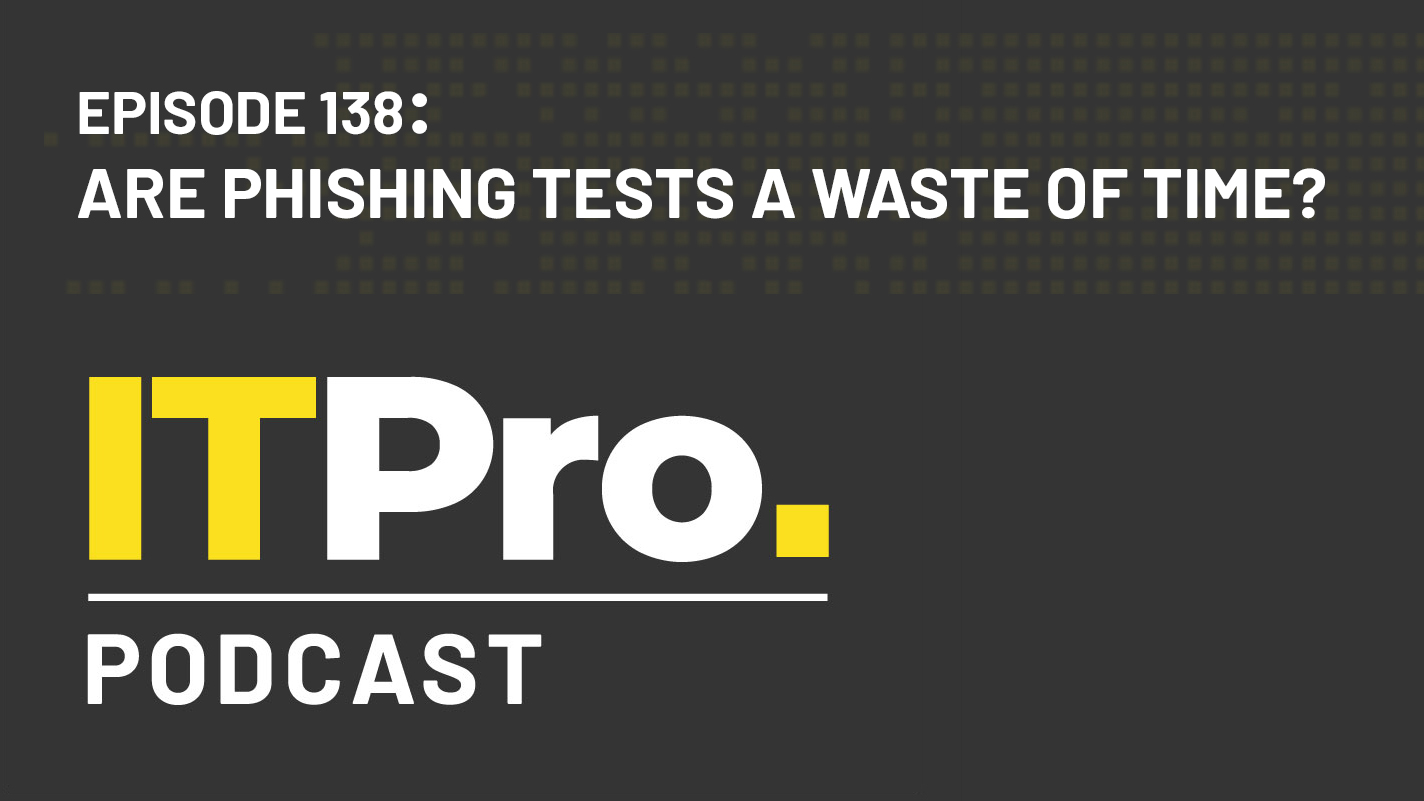
Sign up today and you will receive a free copy of our Future Focus 2025 report - the leading guidance on AI, cybersecurity and other IT challenges as per 700+ senior executives
You are now subscribed
Your newsletter sign-up was successful
Phishing remains one of the oldest and most persistent attack methods for hackers trying to break into an organisation, and potential targets continue to use simulated phishing attacks as one of the primary ways to ensure their staff are ready to defend against it.
However, these spoof attacks aren’t always well-received, and employees can frequently feel unfairly trapped or caught out by these tests. Appearing on this week’s podcast to discuss why phishing simulations are often so poorly received, the value that they offer as part of a wider security strategy and how organisations can deploy them more effectively is Paul Watts, ex-CISO, former IT Pro Panellist, and distinguished analyst for the Information Security Forum.
Highlights
“I'd be lying if I said I haven't been implicated in a couple of phishing exercises that might be maybe cutting it a little bit close. But, you know, you've got to have a sense of emotional intelligence, you've got to understand how your business is thinking and feeling, and there are some areas where you probably shouldn't venture. But what I would say is this: phishing plays on the significance of social engineering to threat actors. And unfortunately, social engineering plays on basic raw human emotions.”
“One of my most favourite phishing campaigns or simulation exercises we did was we wrote to all of the senior leaders to say, your Avios miles are going to expire in the next few days. It was an absolute frenzy. The PAs were mustering to log in and spew their details into this, because God forbid you're going to take an exec's airmiles or airline privilege away from them! It just comes back to exactly what I said; you press the right buttons in the right order, and people will lower their shields and they will fall for it.”
“It's easy to talk about the number of incidents, but more valuable is talking about the times you nearly got caught and celebrating that. And building on that, and that culture that actually, the right thing to do, to be celebrated is to call out when you think something's happened, or you responded to something that you perhaps shouldn't have done, or you're in any way uncertain. To know that you can do that without fear of reprisals, or recriminations or punitive actions is absolutely critical; you can then start to think about what are the most specific threats to your organisation right now, and then focus on those.”
Read the full transcript here.
Footnotes
- What is phishing?
- What makes for the most deceptive phishing attacks?
- Five giveaways that show an email is a phishing attack
- Kaspersky finds most effective phishing emails imitate corporate messages, delivery notifications
- Microsoft unveils wide-scale phishing campaign that circumvents MFA
- LinkedIn phishing attacks have surged 232% since start of February
- One in eight Americans would fall victim to a phishing attack
- 10 quick tips for identifying phishing emails
- Report: IT staff fail phishing tests more often than non-technical workers
- Phishing scam convinces US government to pay $23.5 million to cyber criminals
- Almost half of UK employees can't spot email scams
- Just 3% of employees cause 92% of malware events
- Train firm slammed over 'bonus' phishing test
- Tribune Publishing staff enraged after phishing test promises $10k bonuses
- How to patch your security without unravelling the relationship with your staff
- Panel Profile: Kantar CISO Paul Watts
- IT Pro Panel: Return to sender
Subscribe
- Subscribe to The IT Pro Podcast on Apple Podcasts
- Subscribe to The IT Pro Podcast on Google Podcasts
- Subscribe to The IT Pro Podcast on Spotify
- Subscribe to the IT Pro newsletter
- Subscribe to IT Pro 20/20
Sign up today and you will receive a free copy of our Future Focus 2025 report - the leading guidance on AI, cybersecurity and other IT challenges as per 700+ senior executives
ITPro is a global business technology website providing the latest news, analysis, and business insight for IT decision-makers. Whether it's cyber security, cloud computing, IT infrastructure, or business strategy, we aim to equip leaders with the data they need to make informed IT investments.
For regular updates delivered to your inbox and social feeds, be sure to sign up to our daily newsletter and follow on us LinkedIn and Twitter.
-
 Anthropic promises ‘Opus-level’ reasoning with new Claude Sonnet 4.6 model
Anthropic promises ‘Opus-level’ reasoning with new Claude Sonnet 4.6 modelNews The latest addition to the Claude family is explicitly intended to power AI agents, with pricing and capabilities designed to attract enterprise attention
-
 Researchers call on password managers to beef up defenses
Researchers call on password managers to beef up defensesNews Analysts at ETH Zurich called for cryptographic standard improvements after a host of password managers were found lacking
-
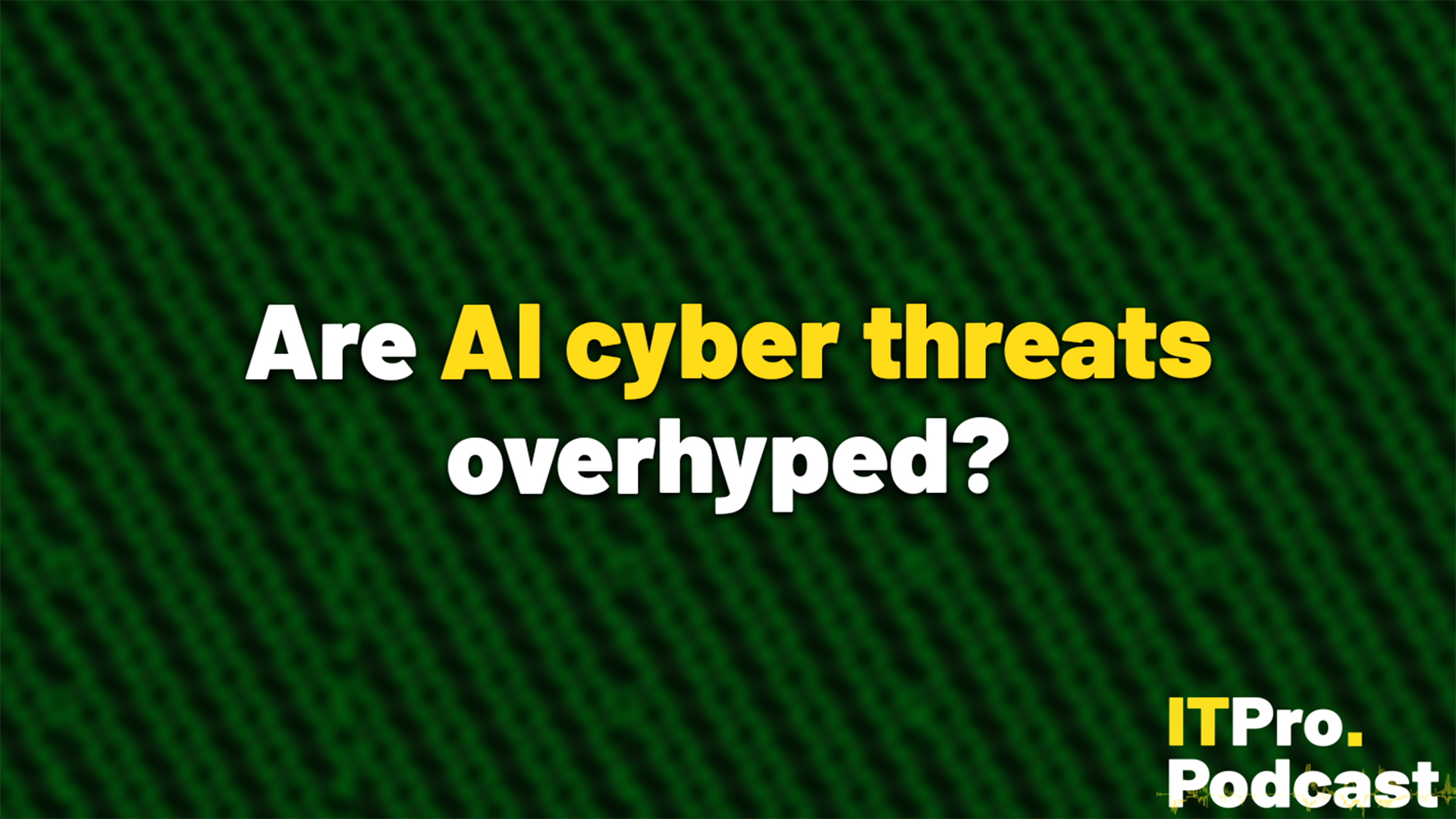 Are AI cyber threats overhyped?
Are AI cyber threats overhyped?ITPro Podcast As cyber teams turn to the threats posed by AI, rising attacks by state-sponsored groups and ransomware gangs remain the biggest threat
-
 The future of threat detection
The future of threat detectionITPro Podcast To fight sophisticated threats, cybersecurity teams will need to unify data like never before
-
 November rundown: CrowdStrike's insider threat
November rundown: CrowdStrike's insider threatITPro Podcast As CrowdStrike grappled with a malicious employee, Cloudflare suffered a major outage
-
 Getting a grip on digital identity
Getting a grip on digital identityITPro Podcast As AI agent adoption explodes, security leaders will need better identity controls than ever before
-
 Let’s talk about digital sovereignty
Let’s talk about digital sovereigntyITPro podcast In the age of AI and cloud, where data resides is a key consideration
-
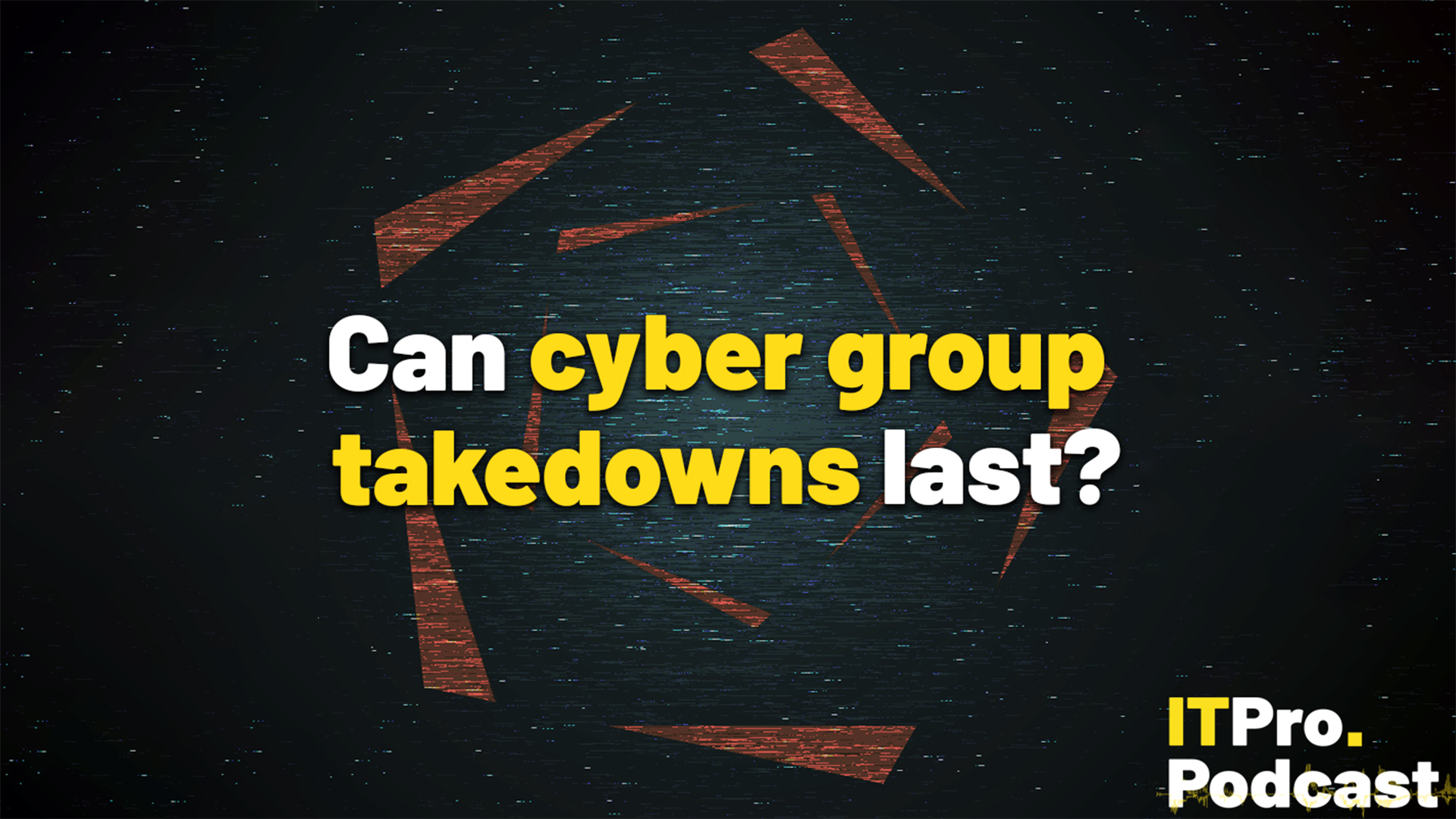 Can cyber group takedowns last?
Can cyber group takedowns last?ITPro Podcast Threat groups can recover from website takeovers or rebrand for new activity – but each successful sting provides researchers with valuable data
-
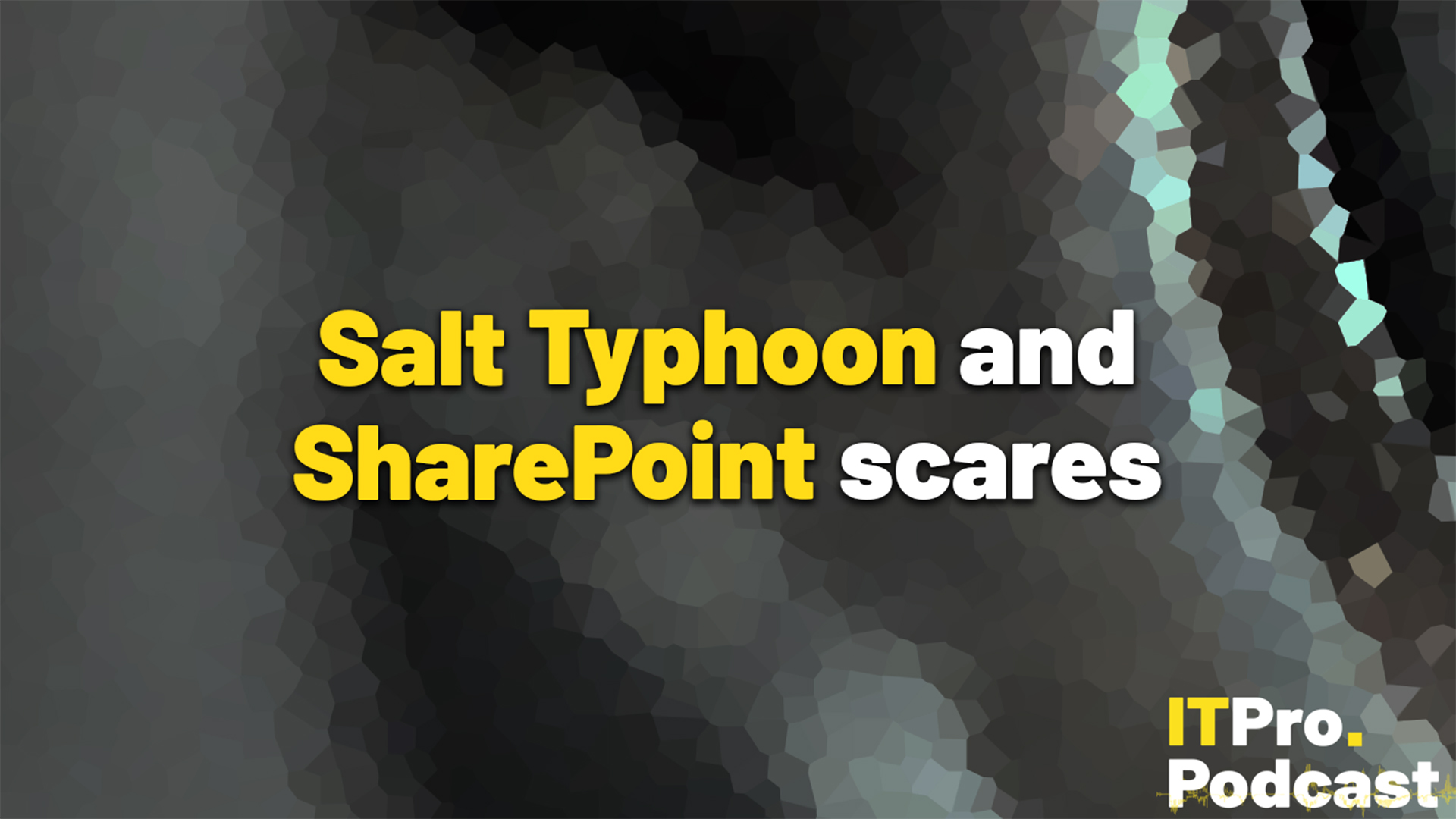 July rundown: Salt Typhoon and SharePoint scares
July rundown: Salt Typhoon and SharePoint scaresITPro Podcast US public sector organizations are under serious threat from the state-backed hacking group
-
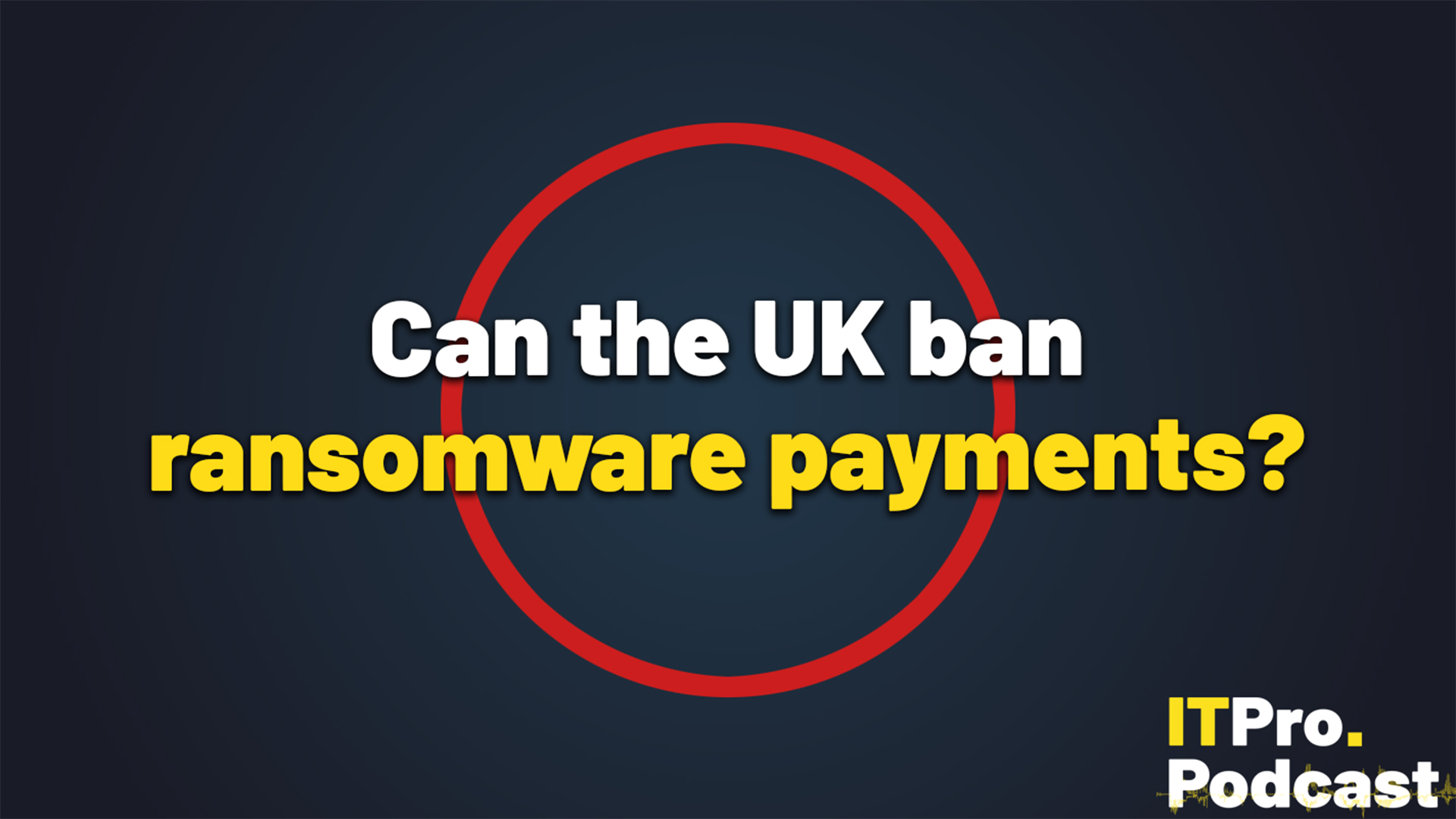 Can the UK ban ransomware payments?
Can the UK ban ransomware payments?ITPro Podcast Attempts to cut off ransomware group profits could instead harm businesses

